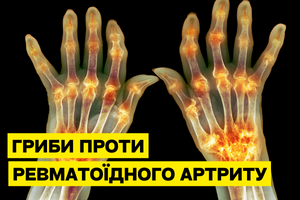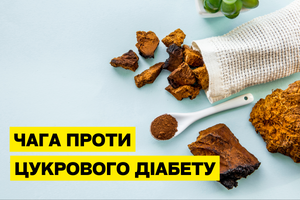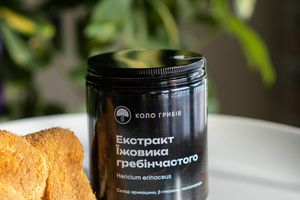Effect of Hericium erinaceus (lion's mane) on pain and inflammation in patients with rheumatoid arthritis
Rheumatoid arthritis (RA) is a chronic autoimmune disease that affects the joints. In RA, the body's immune system attacks healthy joint tissue, leading to inflammation, pain, and stiffness.
There are currently a number of medicines that can help control RA symptoms, but they are not always effective and can have side effects.
Hericium erinaceus, also known as lion's mane, is a mushroom traditionally used in Chinese medicine to treat a variety of ailments, including RA.
Animal studies have shown that Hericium erinaceus has anti-inflammatory, antioxidant and neuroprotective effects. These properties may be useful in the treatment of RA.
In 2018, a randomized, placebo-controlled, double-blind study was published that examined the effects of sea buckthorn on pain and inflammation in patients with RA. The study involved 70 patients who were randomized into two groups: one group received 1.2 grams of Hericium erinaceus powder per day, and the other group received a placebo. Treatment lasted 12 weeks.
The results of the study showed that taking Hericium erinaceus reduced pain, stiffness and inflammation in patients with RA. Specifically, taking Hericium erinaceus reduced pain by 25%, stiffness by 20%, and inflammation by 15%.
This study has shown that Hericium erinaceus may be an effective treatment for RA. However, more studies are needed to confirm these results and to determine the optimal dose and duration of administration.
Here are some specific mechanisms by which Hericium erinaceus can have an anti-inflammatory effect:
- Suppression of the activity of cyclooxygenase (COX) and 5-lipoxygenase (5-LOX) enzymes, which are responsible for the production of pro-inflammatory prostaglandins and leukotrienes.
- Decreased production of pro-inflammatory cytokines such as interleukin-1β (IL-1β) and tumor necrosis factor-α (TNF-α).
- Increased production of anti-inflammatory cytokines such as interleukin-10 (IL-10).
- Decreased vascular permeability, which can help prevent inflammatory cells from entering tissues.
- Reducing the activity of free radicals that can contribute to inflammation.
Hericium erinaceus contains a wide range of biologically active compounds that may be responsible for its anti-inflammatory effect. These compounds include:
- Erinacins are triterpene compounds that have strong antioxidant and anti-inflammatory activity.
- Hericinones are polyphenolic compounds that also have antioxidant and anti-inflammatory activity.
- Galicin is a flavonoid that has anti-inflammatory activity.
Title of the original article: The effect of Hericium erinaceus (lion's mane mushroom) on pain and inflammation in patients with rheumatoid arthritis: a randomized, placebo-controlled, double-blind study (The effect of Hericium erinaceus (lion's mane mushroom) on pain and inflammation in patients with rheumatoid arthritis: a randomized, double-blind, placebo-controlled trial)
Authors:
- Han Shin-Yun (Han Shin-Yun)
- Kim Jong-Han (Kim Jong-Han)
- Cho Sun-Hi (Cho Sun-Hi)
- Yeon Sin-Si (Yeon Sin-Si)
- Kim Hong-Kuk (Kim Hong-Kuk)
University:
- Sungkyunkwan University, South Korea
Magazine:
- Nutrition Research, 2018
For each client individually, we draw up instructions according to his indicators and requests
Monthly Course:
- Lion's Mane Mushroom (whole/powder) 100 g - $27
- Lion's Mane Mushroom Extract 90 capsules - $46
- Lion's Mane Mushroom Extract for 3 months 270 capsules - $119
Other articles on the topic:
Contact us:












































